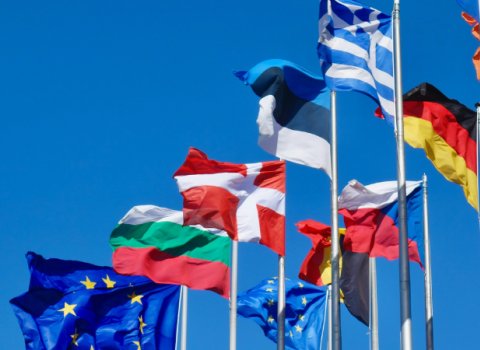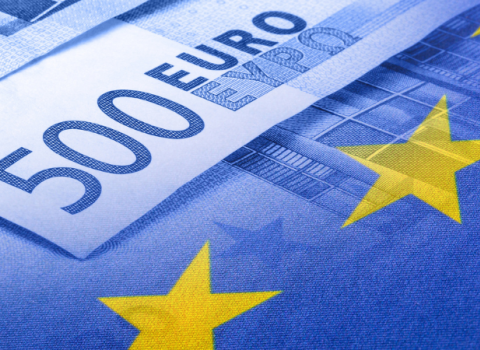Mary Lisbeth D'Amico's first
fortnightly funding column reveals how coming out on top in a start-up
talent show does not guarantee funding in Germany – where early-stage
funding is in the doldrums and even competition sponsors can be wary of
putting their money into the winners.
Philipp Ahrens studies medicine, but he never quite wanted to be a doctor. Instead, the 30-year-old medical student at the Technical University of Munich is throwing his lot in with two other students to found a company called EndoRivet. The three have developed a new process to allow doctors to sew wounds with a device called a gastroscope, which they say is safer and less invasive than methods used today.
That bright idea last week garnered the three students €25,000 in seed funding for their new company as winners of the Munich Business Plan Competition (MBPW). The annual event, sponsored by local government, businesses and research institutions, is designed to encourage technology innovators to bring forward their best ideas for commercialisation, rather than bury them in the halls of academia. Its one of numerous such business plan contests held across Europe.
Yet in Germany, there are perhaps larger risks than elsewhere: with the early-stage funding market in the doldrums, even the best ideas and teams run the risk of running onto dry ground.
Munich Business Plan Competition: The Winners

Philipp Ahrens of EndoRivet
holds the MBPW award
EndoRivet
Founders: Florian Forster, Philipp Ahrens, Ulrich Hausmann
From: Technical University Munich
Won: €25,000
Business Idea: Have developed a process for closing wounds using a
minimally invasive gastroscope. Promises less risk of healing
complications than today’s methods.
Development Phase: Prototype, have filed for a patent
Contact: www.endorivet.com
Dualis
Founders: Andreas Achterberg, Wolfgang Schiller, Thomas Schmid, Martin Stock
From: German Aerospace Centre (Deutsches Zentrum für Luft und Raumfahrt)
Won: €20,000
Business Idea: Wireless, implantable heart support system
Development Phase: Prototype
Contact: [email protected]
Crenano
Founders: Michael Schäffer, Ismail Moarefi, Martin Ried, Rolf Schüler
From: Private entrepreneurs
Won: €15,000
Business Idea: Have developed a process that allows minaturisation of
microorganisms and particles. Can be applied to biotech, for example,
to more efficiently extract protein from cells as well as for
industrial uses.
Development Phase: First customer for pilot project
Contact: www.crenano.de
Although EndoRivet, for example, plans to hold preliminary discussions with several VCs about its future, few of the young firms emerging from the MPBW can expect a warm embrace from the investment community. Indeed, in terms of lending financial support to sponsor the competition, VCs and industry have trimmed their support from more than €1 million annually to about €800,000 this year, according to Curt Winnen, general manager of the competition.
And while VCs have invested some €238 million in companies coming out of the competition since the MBPW started in 1997, most of that went just to a few companies. According to Winnen, "the majority" of the companies are self-funded, although he couldn't give specific figures.
“There is a significant seed-funding gap in Germany,” says Winnen.
Not even the competition’s VC sponsors are necessarily interested in finding investments via the MBPW. Kurt Müller, founder and partner with sponsor Target Partners, says that the presenting companies are simply too early-stage for the firm to invest in. “We do this more to support the community than because we are expecting a hot deal,” says Müller.
Müller says one problem is a lack of entrepreneurial experience locally to make such a startup work. In 2003, Target invested in an electric-design automation company called ChipVision with a technology that came out of the University of Oldenburg. But it only did so after it found Stan Krolikoski, formerly with Cadence Design Systems, to run the company. “In the US the pool of serial entrepreneurs is deeper. If someone I know comes to me and says he has an idea for a new company, and I know he can put together a great team, I might fund it,” says Müller.
Early stage and in particular seed fund investment in Germany has fallen drastically since the collapse of the high-tech bubble in 2000. Investment in seed and first rounds totalled only €353 million last year, compared to €1.6 billion in 2000, according to the German Venture Capital Association, and seed investments constituted only 0.6 percent of overall venture investment volume in 2004, compared to 8.7 percent four years earlier.
The German government has also heavily curtailed its involvement in venture capital. During the boom years, the Kreditanstalt für Wiederaufbau subsidiary TBG would take a matching silent participation—like a cross between a loan and an equity stake—when a VC or business angel funded a company. The agency gave VCs a further incentive to invest by covering half of their losses in the event of a company failure, for up to five years. Critics said this led to some unwise investing decisions by VCs, who had little to lose. “That was a recipe for disaster,” says Rolf Schneider-Günther, managing partner with Baytech Venture Capital in Munich.
That has now been abandoned for a more market-oriented approach. The KFW offers a host of programs, from funding for innovative companies to micro-loans of €25,0000 to entrepreneurs. And in September, KFW along with Siemens, BASF and Deutsche Telekom, launched a €262 million “High-Tech Gründer Fond”, that provides up to €500,000 in financing for seed fundings in qualified companies. The fund was considered urgently necessary to prevent the seed funding arena from drying up completely.
Ostensibly, both federal and local governments understand the importance of fostering startups in high-growth industries at a time when German GDP growth plods along at 1% annually and headlines are dominated by mass layoffs. “We are counting on you for our future economic success,” Reinhardt Wieczorek, advisor to the city of Munich, told the MBPW contest participants gathered at the awards ceremony last week, pointing to areas such as nanotechnology, medicine technology and IT.
Yet even these efforts are not enough, believes Winnen. The Munich Business Angels network, of which he is a co-founder, is organizing a seed investors network to help address the problem, so that MBPW winners will at least be covered for another six months after the program, to fill the funding gap.
EndoRivet’s Ahrens says the support he has had not only from the MBPW, but also from technology transfer and coaching organisations within the TU Munich have really helped the fledgling enterprise, which will not be established as a limited company until some time next year. Still, he will have to hope that eventually, VCs step up to the plate.
VCs were conspicuously absent from the Munich event. But even a VC must keep an eye out that early-stage ideas do get funded, or the pipeline for the future will also dry up.





 A unique international forum for public research organisations and companies to connect their external engagement with strategic interests around their R&D system.
A unique international forum for public research organisations and companies to connect their external engagement with strategic interests around their R&D system.